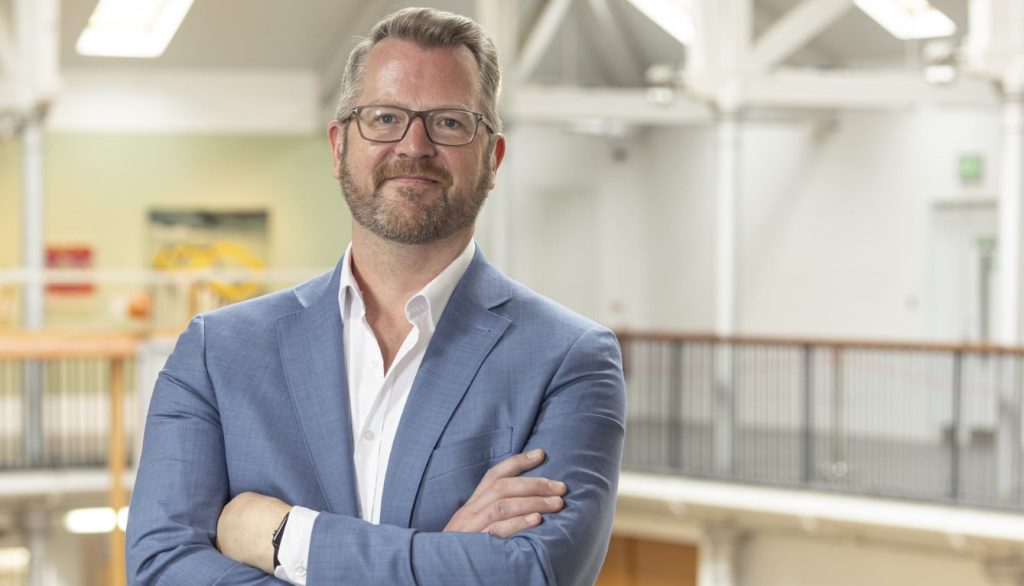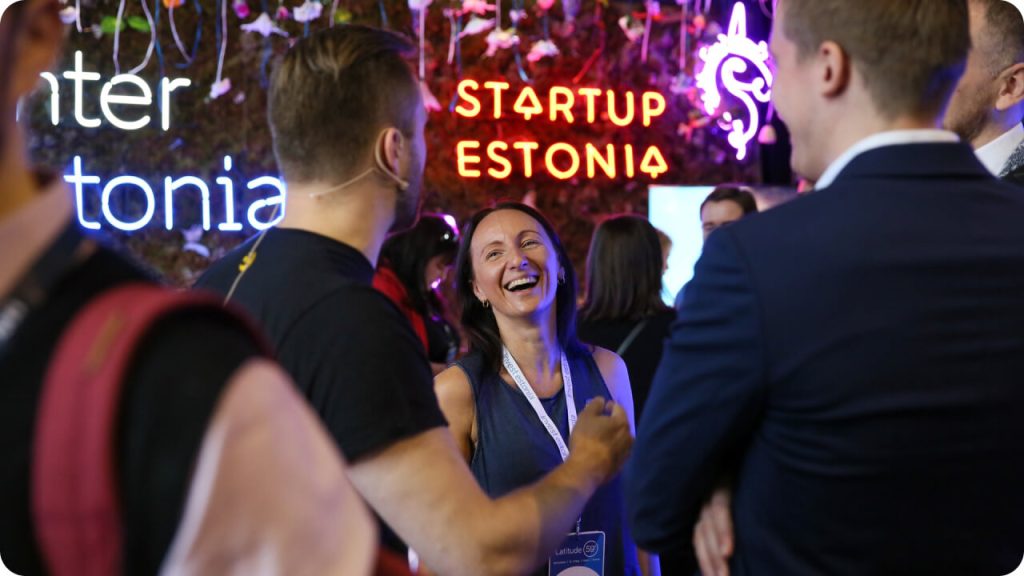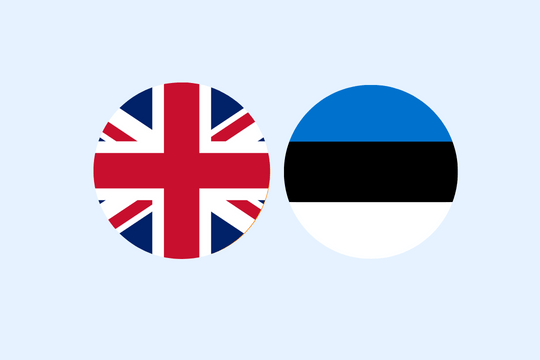the e-resident revolutionising credit risk analysis
E-resident James Varga is the founder and CEO of DirectID, a globally distributed business using open banking to revolutionize credit risk analysis

Among the many mysterious algorithms which rule our lives today, your personal credit score can have a serious impact on your lifestyle. Affecting access to all kinds of consumer credit, including home loans, the scoring criteria for this essential rating are deliberately opaque. Sometimes, even trying to find out your score can be detrimental. For e-residents, it might be interesting to know too that the known criteria for traditional credit scoring seems to actively discriminate against the growing demographic of globally mobile professionals.
Estonian e-resident CEO of DirectID, James Varga, knew something had to be done.
We all know the general credit bureaux advice about improving one’s credit score: open new accounts with the right kind of banks, build a long-term credit history with established institutions, and make sure you’re on the electoral register, ideally with a permanent employment contract. All of these factors are considered indicators of a stable and predictable cash flow, to help with decisions being made about your personal reliability.
In the past, it was arguably challenging for lenders to clearly differentiate credit risks of prospects without outsourcing this complex and obscure horoscope-casting to the global credit-scoring bureaux. But today, with Open Banking standards (adopted by the EU as Payment Services Directive PSD2), there’s a better way.
This is the problem DirectID are solving for their clients: providing real-time data-driven insight into the financial profile of their potential credit customers, creating a win-win for both parties in the deal.
Introducing data-driven lending risk modelling
As James explained, “we use bank statement data as a way of helping our customers, who are lenders, make better, easier, faster, lending decisions.”
James has been working with these standards throughout their development, originally chairing the data subgroup for the UK Open Banking working group, and helping HM Treasury build a strategy around it. Pivoting from an initial B2C offering, DirectID have worked with global brands such as Deliveroo, XE and Nasdaq, empowering their clients to make better decisions about credit and risk.
Despite this impressive CV, however, James himself was recently declined on a credit check at the Apple Store!
Clearly there were flags on his score due to an internationally mobile lifestyle, which were completely unrelated to his ability to pay for a phone – elegantly illustrating how traditional credit scoring is simply unhelpful to both sides in many situations.
Our current account banking statements, on the other hand, paint a detailed picture of how any credit applicant really manages their lifestyle, irrespective of location or activity. For remote workers and digital nomads, this can be particularly beneficial.
DirectID’s insights enable lenders to consider income from multiple sources, such as freelance work or side businesses, as well as spending patterns that may differ from those of traditional employees. This unlocks credit access for people who also frequently manage complex and fluctuating income and expenditure, yet tend to be automatically excluded from the best deals.
Financial inclusion for global citizens
Ultimately both sides benefit when lending risk is accurately modelled, as James points out, “creating a universal credit score that’s a lot more financially inclusive, that isn’t dependent on whether you’ve had 20 loans in your life, or never had a loan, or just moved country…”
It’s a refreshing change from the traditional credit bureau paradigm, where historical repayment performance was everything. “At 18, we tell people to go to university, get a credit card, use their student loan to pay off their rent, just to have access to products in future, build up your credit score, essentially.”
Otherwise, you can forget about getting a car loan when you graduate – and just when you’re probably facing the same kind of ironic dilemma around the employment vs. experience trap.
But just as work is changing, the mood around credit is changing, and DirectID is helping lenders respond to that.
“There’s big momentum, the world is waking up to open banking. Credit scoring all of a sudden seems to be the biggest use-case for open banking data, more so than the payment side,” James explained. “And we’re trying to leverage that to solve these pain points.”
“We have to build more bridges between people wanting products and people providing products. That’s simply what we do”
Other aspects of the regulatory world are still in need of change, not least when it comes to operating a business internationally.
Initially DirectID was constituted in the UK, reflecting its founder's origins. They passported the business through Europe as it grew, but then, as James put it, “Brexit happened.” So much for a new global openness.
Read our comparison between starting and running a business in the UK vs Estonia:
E-Residency supports DirectID's Journey to Global Expansion
After investigating other possibilities - including the option of a base in Ireland - they found that e-Residency in Estonia made the most sense, for the way they wanted DirectID to develop internationally.
They’re presently going through the regulatory procedures to license and operate as a financial institution in Estonia, “which is exciting in itself. We're going to use Estonia to expand through Europe to increase our coverage. We support 45 countries already. But it deepens our connectivity around Europe and gives us a base to work from,” James explained.
More than that, he feels that the country provides the right cultural fit too, when it comes to embracing innovation in fintech – which is why Canadian-born James is spending more and more time visiting his new digital home.
Estonia for networking, partnership, and investment
Attending sTARTUp day last year led directly to a €9m investment from Ingka, the corporation behind IKEA. This connection was facilitated by the direct conversation initiated at this event, and is accelerating DirectID’s expansion into new markets, along with development of new bespoke predictive modelling tools.
It wasn’t just the connection with a funder which led James to describe the event as one of the best he had ever been to for the size. “The quality of the engagement, the collaborative effort from the university, the town, e-Residency… A really good example of everyone coming together to build a great event.”
So it’s no surprise that the DirectID founders are coming to Tallinn this spring for Latitude59, for further networking and conversation with the world-famous Estonian mafia and its global outreach.
And they’ll be catching up too with their growing team in Tallinn, while continuing to collaborate daily with other colleagues spread across Europe and Africa.

An international team to drive a global fintech revolution
DirectID use an employer of record to hire the best people, and let them work where they want to live. “From a FinTech perspective, the UK talks a lot about a lack of skills and resources. I'm sure most cities that have any density around tech companies and startups talk about that in some way or another. So we just recruit for the timezone, plus or minus a couple of hours.
“Why limit yourself to the UK or anywhere else? We're remote-first, we're very flexible as a company. We try and be as agile and nimble as possible.”
The combination of Estonian e-Residency, local employers-of-record, and the increasingly globalised open banking standards, make it possible for DirectID to function and provide services which could not have existed in previous eras, while the use of digital ID and credentials in Estonia was an intuitive fit for James.
“E-Residency is just a really great example of how the public sector can take a lead on establishing something that attracts inward investment.”
He points out. “The process – signing up, the 100 euros, going down to the Estonian consulate, was all faultless, I couldn't complain at all about that.
“Just the ability to set up, get the business configured,” he concluded. “Not to have to worry about work permits and that sort of thing, because that just all comes bundled in, and we just get on with it.”
The way business should be, the way lending should be. The data is there to be verified, and all it takes is the vision to challenge traditional credit risk analysis and change the way things have always been done.
Apply for e-Residency
More from e-Residency
- Sign up for our newsletter
- Watch fresh video content - subscribe to our Youtube channel
- Meet our team and e-residents - register for our next Live Q&A

